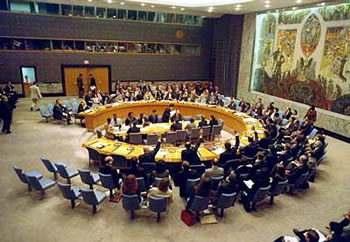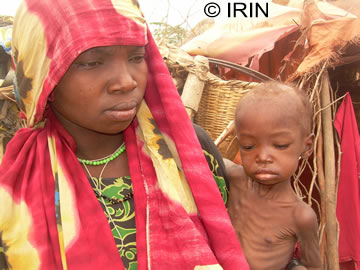fiogf49gjkf0d
D I T O R I A L
HIIRAAN ONLINE
Tuesday, September 09, 2008


 On June 9, 2008, the Transitional Federal Government of Somalia (TFG) and the Alliance of Re-liberation of Somalia (ARS) made in Djibouti, under the auspices of the United Nations, a historic peace agreement. The international community and particularly countries such as France, UK and the United States witnessed the agreement and played a pivotal role in pushing the Somali parties to take the path of peace.
On June 9, 2008, the Transitional Federal Government of Somalia (TFG) and the Alliance of Re-liberation of Somalia (ARS) made in Djibouti, under the auspices of the United Nations, a historic peace agreement. The international community and particularly countries such as France, UK and the United States witnessed the agreement and played a pivotal role in pushing the Somali parties to take the path of peace.
Reconciliation was, however, not an easy undertaking for the TFG and the Alliance, for the two sides had engaged in the previous year and half a fierce fighting that caused both sides thousands of lives. As a result, the peace initiative created profound division within the Alliance; likewise, the TFG almost split into two opposing factions. In spite of these difficult shifts (from war to peace), the Somali parties kept their side of the commitments and continued marching towards reconciliation. The Djibouti agreement stipulated, inter alia, the withdrawal of Ethiopian forces in 120 days, deployment of international peace force, cessation of hostilities, political settlement and facilitation of humanitarian access. The parties further agreed to establish two important joint committees, the High Level Committee and the Joint Security Committee. Both committees are currently functioning smoothly – a proof that the ex-adversaries are genuinely interested to end the Somalia crises.
The success of the Djibouti peace accord, however, hinges on the deployment UN stabilization forces replacing the Ethiopian forces. Deploying peacekeeping force into Somalia is the sole prerogative of the Security Council, for Somalia is under UN embargo. Moreover, only the Security Council could marshal the international political will, financial resources and technical expertise needed for the envisaged UN stabilization force for Somalia.
According to the Somalia parties to the conflict, the countdown for Ethiopian withdrawal started on June the 9th and the deadline for the arrival of UN forces was supposedly on October the 9th. Then, the international community and particularly the members of the Security Council informed the Somali parties that they would only consider the Djibouti accord when the two parties actually sign it (ostensibly what the TFG and the Alliance did on June 9 was just an initialization!) August 18 is now the new revised date that the peace accord between the TFG and Alliance comes into effect.
 |
| Mother and her child in Beletweyne: According to the U.N. High Commissioner on Refugees and the U.N.’s Under-Secretary General for Humanitarian Affairs, the crisis in Somalia has become the world’s worst humanitarian crisis. |
In the meantime, fighting between the Ethiopians and other elements of the opposition are raging unabated, causing untold deaths and destruction. The humanitarian situation of the country is deteriorating. According to the Food Security Analysis Unit of Food and Agriculture Organization (FAO), “One in six children under the age of five is acutely malnourished, and the number is continuing to increase.”
The Responsibility to protect the principle and commitment the international community made to the Somalia parties necessitates an urgent Security Council approval and acquisition of peacekeeping forces for Somalia. Unfortunately, the Security Council in its September 4th Presidential Statement, yet again, sent the Secretary General back to the drawing board – asking him to come back to them in two months time with elaborate plan.
The Security Council members who visited Djibouti earlier this year encouraged the warring Somali parties to plunge into the peace deal. The Council also invited a joint TFG/ARS delegation to address the Security Council. The TFG and the Alliance jointly and separately requested immediate international stabilization force. The Ethiopians also want UN forces to replace them. The African Union has repeatedly called for UN takeover of the Somalia file. In short, the Security Council understands that finding and urgently authorizing peacekeeping forces is indispensable, albeit the very foundation that the whole Somalia peace agreement stands on.
For 18 years, the Security Council was doing nothing tangible but recalling, reiterating, reaffirming as well as some condemning and commending here and there. The current wavering of the UN body seems to reveal that the Security Council have since capitulated the most crucial aspect of the peace agreement – authorizing international peacekeepers to replace the Ethiopian forces. In doing so, the Security Council is effectively torpedoing a rare momentum of peace that sprung from the Djibouti peace deal.
As far back as June 17, Ahmedou Ould-Abdallah, the Special Representative of the Secretary General of the UN, implored the International community to bolster the fragile Somalia peace agreement with UN peacekeepers. He said in a statement, “Today what is at stake is not only peace and stability in Somalia but the credibility of the international community…”
Hiiraan Online wholeheartedly agrees with the sentiment of the Special Representative of the Secretary General.
The Somalia parties must also redouble their efforts to dispel any misgivings about their commitment and intentions.
Send comments to: [email protected]
